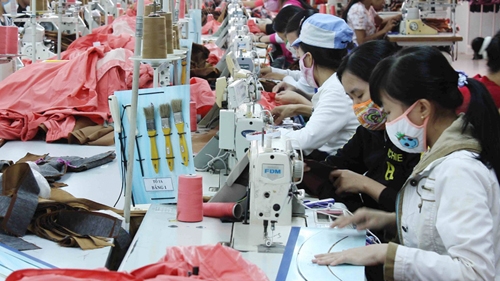
The government has claimed that state-owned enterprises equitisation results achieved so far this year well reflects its approach to efficiency.
 |
The government has claimed that state-owned enterprises equitisation results achieved so far this year well reflects its approach to efficiency.
Although just 71.5% of the 289 state-owned enterprises (SOEs) planned for equitisation this year may complete their schedules, the Government Office Chairman and Minister Nguyen Van Nen told VIR that ‘this is not a failure’.
“The quality of equitisation is the most important, not the quantity,” he said.
While noting that the SOE equitisation process largely depended on market demand, Nen said the government meanwhile took a prudent step in selling SOE stakes.
“The government does not want to sell SOE stakes at any cost,” he explained.
According to the government report to the ongoing National Assembly session, since early this year, about 70 SOEs have conducted their initial public offerings, with more than 734 million shares going on sale, worth over VND7.34 trillion (US$341.4 million).
Also, in the past 10 months, SOEs have earned VND12.8 trillion (US$595.34 million) by divesting capital from non-core business lines and selling stakes, up 149% on-year.
The report indicated that the equitised enterprises’ performance had remarkably improved. Reports by 2,400 enterprises that underwent equitisation showed that on average, after one year their chartered capital increased by 68%, revenue climbed 34%, after-tax profits rose 99.9%, and income ascended 77%.
The government also reported that SOEs’ total asset value for 2015 was expected to increase 36% against 2010, with their equity, revenue, and pre-tax profits rising 62%, 18% and 56%, respectively.
Still, the government has been urged to speed up the equitisation pace and open the door wider for private investors to seize the opportunities emerged from the process.
National Assembly member Truong Van Vo from the southern province of Dong Nai said private enterprises, especially foreign ones, were seeking to gain entry to sectors controlled by the state, such as electricity, fertilisers, insurance, and banking.
“However, only a few SOEs have been actually equitized and the state still holds the majority of their stakes,” he said.
Echoing this view, European Chamber of Commerce in Vietnam’s vice chairman Tomaso Andreatta said in SOE equitisation the number of shares offered to private investors was often too small, ranging between only 5-20%, to effectively attract private strategic investment.
“Foreign investors are usually only interested in buying SOE shares if they can obtain decision-making power in the enterprise,” he said. “Instead, the state tends to retain the power to appoint all or a majority of the board members.”
He added that SOEs continue to enjoy preferential treatment, as opposed to private enterprises. Equitisation often meant shares were bought by employees of the SOE.
(Source: VIR)




